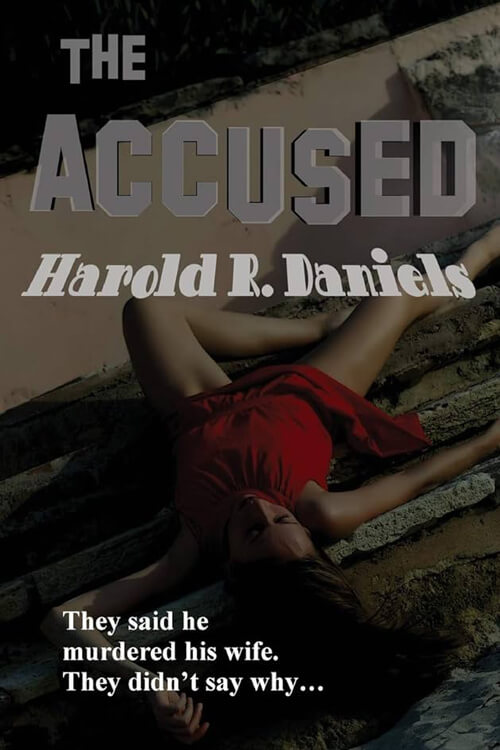
The Accused
Morlock said doubtfully, “I’d have to think about it.”
Dodson said scornfully, “Think, hell! We’ll just get in my car and go tomorrow night. We can be there by seven. You go in these places and order beer,” he said. “A dime. That’s all you have to spend while you look them over. They’ve always got a jukebox or a small band on weekends. I don’t mean bags when I say there’s stuff there waiting to be picked up. Young stuff, I tell you. Nineteen and twenty. And some of them Eyetalian and Polack girls will knock your eye out. Knockers on them like movie stars, and they jump around wiggling their little butts…” Dodson paused, his eyes bright. “Treat you like a king.”
And Morlock, even as he despised Dodson, agreed to go along.
Half a dozen times the following day, he was tempted to tell Dodson that he had changed his mind, but the recollected words, “young stuff,” held him back. Morlock convinced himself he would find a decent girl among Dodson’s more promiscuous Circes. He told himself that he would content himself with a mild affair with such a girl and let Dodson go to whatever extremes he wished. Morlock had made such plans before. More often than not, they had ended sordidly enough; nevertheless, he still hoped to fall in love one day. He did not belabour the obvious fallacy that such emotion was hardly likely to be found in the companionship or the haunts of Dodson, History II.
Later, he took some pleasure in telling Paul Martin of his plans. Martin, a chemistry instructor, had the sort of aloof dignity that Morlock would like to have. He had more than once sheepishly realized that he was involuntarily imitating Martin’s mannerisms of speech. He admired Martin, and he openly sought his friendship
Read or download Book
Harold R. Daniels
Daniels graduated from college in Milford, Connecticut, and became a specialist in the metal industry.
Biography.
From 1958 to 1972, he edited the magazine Metalworking. In the 1950s, he published numerous short stories, and in 1956, he published his first novel, In His Blood, which was nominated for the Edgar Allan Poe Award.
Little known in France, Harold Robert Daniels, however, wrote Claude Mesplède and Jean-Jacques Schleret’s “remarkable works for the quality of the realistic plot and description of the small towns of the United States”. His fourth novel, The Snatch, published in 1958, is described by John D. MacDonald as “one of the modern classics of crime and punishment.
His sixth and last novel, published in 1966, House On Greenapple Road, is appreciated by Claude Mesplède as “undoubtedly his most complete book” and adapted for television in 1970. One of his new Death Does Not Wait (Road Hog) is adapted twice in each of the two series Alfred Hitchcock presents.






